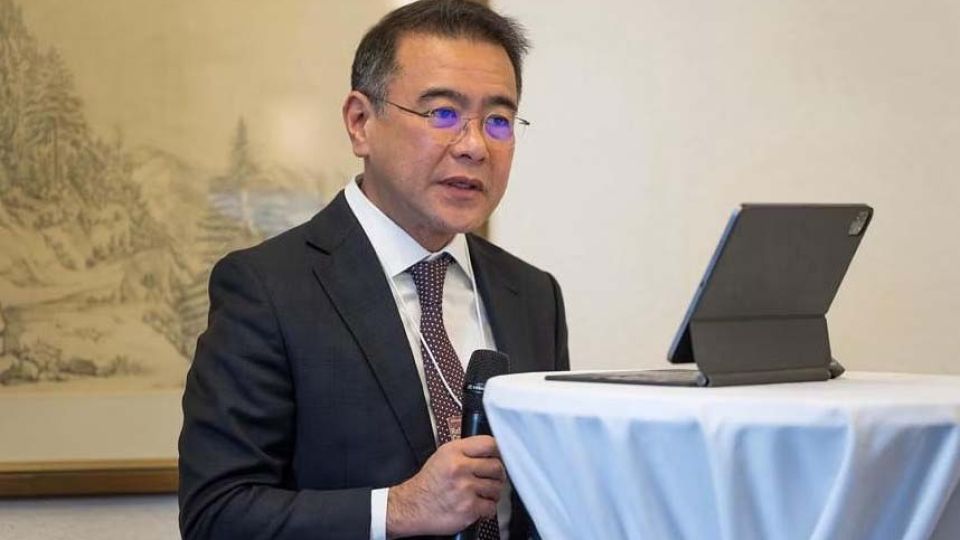August 2, 2024
MANILA – The state-run firm managing the Philippines’ first sovereign wealth fund is set to make its initial investment by connecting two major island provinces to the national power grid, in line with President Ferdinand Marcos Jr’s push to reduce electricity costs in far-flung places during his term.
Maharlika Investment Corporation president and chief executive Rafael Consing Jr told The Straits Times that by the last quarter of 2024, the Maharlika Investment Fund (MIF) will begin investing in energy security projects in Mindoro and Palawan.
Mindoro, located 140km south-west of Manila, and Palawan, lying 618km to the west of the capital, are two off-grid island provinces that have long been suffering from regular blackouts and high electricity costs even before Mr Marcos took office in 2022.
Mr Marcos, in his State of the Nation address on July 22, cited the urgent need to address power shortages in these disadvantaged areas. Though he did not mention the MIF in his speech, the President said his government is exploring ways to meet the country’s growing electricity demand.
Established in July 2023, the new sovereign wealth fund has an authorised start-up capital of 500 billion pesos (S$11.5 billion) and will allow the government to make key investments without acquiring more debt.
The Marcos government said the MIF, patterned after the sovereign wealth funds of countries like Norway and Singapore, would stimulate economic growth and generate jobs.
The MIF will build secondary distribution lines and power sub-stations in Mindoro and Palawan, and will eventually connect these to the national power grid so residents will have access to affordable and reliable electricity, said Mr Consing.
“Power precedes progress,” he said in an interview with ST on July 26.
Residents and the government will benefit from powering up these rural areas, Mr Consing said, citing a study conducted by the Department of Energy.
“If you’re providing electricity for a poor family from zero to eight hours, you increase their income and expenditure by 15.7 per cent and 14.8 per cent, respectively. And if you bring it all the way to 24 hours, it rises by 55 per cent and 57 per cent, respectively,” he added.
Once the improved distribution lines are in place, the fund will then focus on providing fast internet connectivity services in Mindoro and Palawan.
“So imagine the combination of electricity and broadband. That’s one of the recipes for capital formation,” he said.
If all goes well, Mindoro residents will have better electricity access by the second half of 2025, Mr Consing said. He did not give a timeline for Palawan.
The MIF also plans to invest in several big-ticket infrastructure projects in a special economic zone in Pampanga, north of Manila. That includes the expansion of Clark International Airport, the construction of an affordable housing project and a transportation hub near the airport, and improving a major seaport located farther up north in La Union province.
Mr Consing also said there are plans to invest in a sustainable copper mining project, without disclosing further details due to a non-disclosure agreement.
The Maharlika fund will be making more announcements with concrete details sometime in September, he added.
Instead of sourcing the seed money from the nation’s excess funds, the MIF will be financed by the national government, the state-run Land Bank of the Philippines and Development Bank of the Philippines, and declared dividends from the Central Bank.
Critics have raised concerns about corruption, as the MIF will be run by a board filled with presidential appointees.
They warn that the new fund could end up like the 1Malaysia Development Berhad (1MDB) state fund. In one of the world’s greatest financial scandals, about US$4.5 billion (S$6 billion) was allegedly stolen from the Malaysian sovereign wealth fund, with the authorities saying that the now-jailed former prime minister Najib Razak illegally received more than US$1 billion traceable to 1MDB.
However, Mr Consing gave assurances that the MIF’s investment and risk management framework, approved on July 18, provides enough safeguards against possible abuse.
“We are going to be hitting the ground running now that we’ve already approved the framework. We are undertaking due diligence on four projects simultaneously,” he said.
He hopes that once the MIF is in full swing, it could also begin exploring potential partnerships with Singapore in areas such as data centres, climate and sustainable development.
But he knows that the pressure is on for the MIF to prove that its planned initial investments will generate the results it has been promising the people.
“When we look back five years from now, one of the questions I’d like us (MIF) to ask ourselves is: How many jobs have we actually created? How many sectors have we enabled? How many lives have we changed? That’s how we want to be judged,” Mr Consing said.
“Our results will speak for themselves”.

